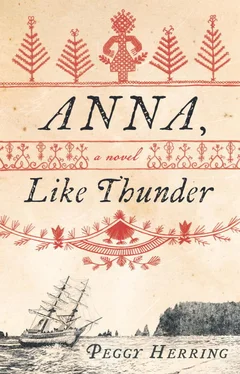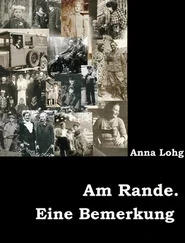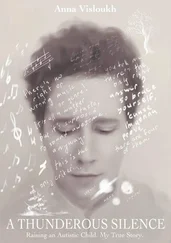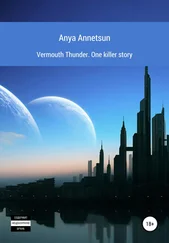Koliuzhi Klara catches my eye and gestures, putting her fingers to her mouth. So, I take the piece of egg and put it in my mouth.
It’s fishy and greasy and a bit chewy, but warm as it is, it’s also pleasingly rich. It reminds me of turkey eggs, but only if they were eaten with dollops of caviar and sour cream.
The women watch me expectantly. When I smile and nod, still chewing, they laugh. I swallow and say, “Oo-shoo-yuksh-uhlits.” I know it’s Makee’s language, not theirs, but it’s the only word I know for “thank you.” The women shriek with laughter, but from their expressions I believe I’ve done something that has pleased them.
As our group moves to the next old man in the house, I see Koliuzhi Klara slip a gull egg to the American when no one’s looking. His face is surely as shocked as mine. He rolls the egg into his sleeve before anybody notices.
One afternoon, as I head to shore to wash my hands, I find the beach crowded with children, Holpokit is in the centre of their high-spirited play.
“Ahda!” he calls when he sees me. He says something to the children and they laugh. Zaika, the little girl who clings to Koliuzhi Klara, runs over and grabs my hand.
“Wait,” I cry. “Where are you taking me?”
Holpokit laughs at me. She’s just a child—why should I resist? I let her pull me to the others. Holpokit leads them in a kind of a chant or rhyme that they all know. When he finishes, everyone except him—and me and Zaika—runs away.
Zaika pulls on my hand and shouts desperately.
I look to Holpokit for guidance. “What’s going on here?”
Holpokit says, “Hi  ilá
ilá  alo ka
alo ka  kadiyás
kadiyás  al. A
al. A  litíta
litíta 
 as cha
as cha  lítiksh hí
lítiksh hí  at ka
at ka  diyás
diyás  aliksh. Dáki
aliksh. Dáki  hi’adasákalawόli.”
hi’adasákalawόli.” [52] We are playing hide and seek. It means that you run and hide, and I look for you.
He points to the forest.
I look at Zaika. We run.
Zaika and I slip into the forest. We follow a narrow vale until she pulls me up its other side. We head deeper into the forest. I hope she knows where she’s going—we’re no longer on the path. We dart among the tallest trees, avoiding the fallen logs and the thickets of berry bushes. Wet foliage sparkles like jewels. The shrubs must have dressed for an evening out.
I hear rustling near my feet. The boy who won the fern game squats beneath a moss-covered log. When our eyes meet, he puts his hands on the back of his head and pulls his face down until his hair falls like a curtain and he’s nearly invisible in the shadows.
Zaika says something in a low voice.
We arrive at what looks to be a sheer drop. The underbrush is thick, and it’s impossible to judge how deep this chasm is. There may be a path down. I see a narrow ledge that disappears into the foliage. I shake my head. It’s too dangerous.
Still, Zaika urges me forward.
“I don’t think this is a good idea,” I say, attempting to extract my hand from hers. But she squeezes my fingers until they hurt. Then she jumps. “No!” I cry. She lands on that narrow ledge. Only by bending awkwardly am I able to stay on the edge and hold onto her.
“You’re going to pull me over.” I slide down until I’m beside her. We share a tiny space that has barely enough room for our feet. Then she leans over and parts a wall of ferns. There’s a cave.
She pulls me inside. The ferns bend back into place.
“What is this?” I say, incredulous, and my voice echoes. The cave is cool and dark—but not entirely black. It must be deep. She tugs my hand, hard, and I think she wants me to be quiet.
This is a serious game of Cache-Cache, and Zaika has a perfect hiding spot. How she ever found it is a mystery. Whoever is looking for us—it must be Holpokit—will never find us.
She squats against a wall and pulls me down next to her. The wall is cool. She shivers.
We wait. After a few minutes, my eyes adjust. The floor of the cave is earth and toothy rocks that force their way up through the ground. It’s very wet and there’s a slow plop-plop-plop of dripping water. The little light that filters through the ferns at the cave’s mouth is not enough to enable me to see much more.
Is the girl scared? She turns her head, and I see her eyes and her smile flash white in the sparse light. She’s been here so many times she’s not afraid.
We wait. I try to imagine what’s happening outside. Has Holpokit found the boy hiding under the log? Who else has he found? Do the children set boundaries on how far away they can hide? Unless Holpokit knows all the secret places, we might be waiting a long time.
I shift to get more comfortable for the tedious wait ahead and I feel a jab in my hip. It’s the small wooden doll that the carpenter Ivan Kurmachev made and gave me. It’s still tied to the end of my sash because I have nowhere else to keep it. I reel in the belt.
Zaika watches me unknot it. When I show her what’s there, she’s surprised. I offer her the doll. At first, I only mean for her to hold the doll, but when I see her expression, I want her to keep it forever.
She turns the doll over and over in her hands. She whispers, “Wa  ax wx wόx wa a
ax wx wόx wa a  achidá
achidá  al. K wota
al. K wota  asichíd.
asichíd.  wόpat
wόpat  wali.”
wali.” [53] That’s not a rock dolly. Where did you get it? I like it! NOTE: Traditional Quileute dolls are made of thin, round, flat beach rocks. Eyes, a nose, and a mouth are scratched on that face. The dolls wear dresses of woven cedar bark.
She gazes into the doll’s plain face then touches it to her forehead, her eyes closed. Then she pulls the doll away and tries to give it back. I shake my head, no. “I want to give this to you,” I whisper. “I hope you like it.”
She cups both her hands around the little doll. Again, her teeth are a flash of white.
Suddenly, from the back of the cave, there’s rustling—and then it stops. Zaika is rigid. Is it an animal? It could be a mouse. But it could be a wolf. Or a bear.
Should we run? Would we have time to get through the narrow opening and climb up the ledge? Perhaps we’re better off staying very still. The creature may go away.
Читать дальше


 ilá
ilá  al. A
al. A  as cha
as cha  at ka
at ka  hi’adasákalawόli.”
hi’adasákalawόli.”  wόpat
wόpat 










